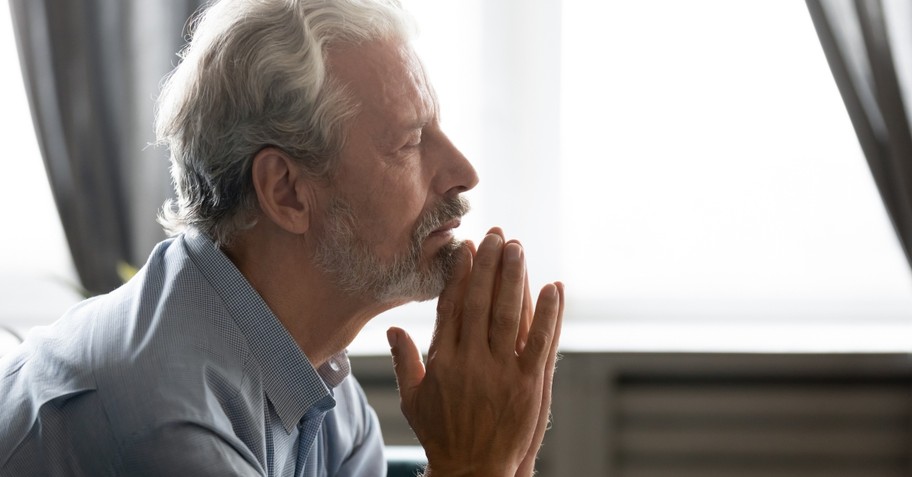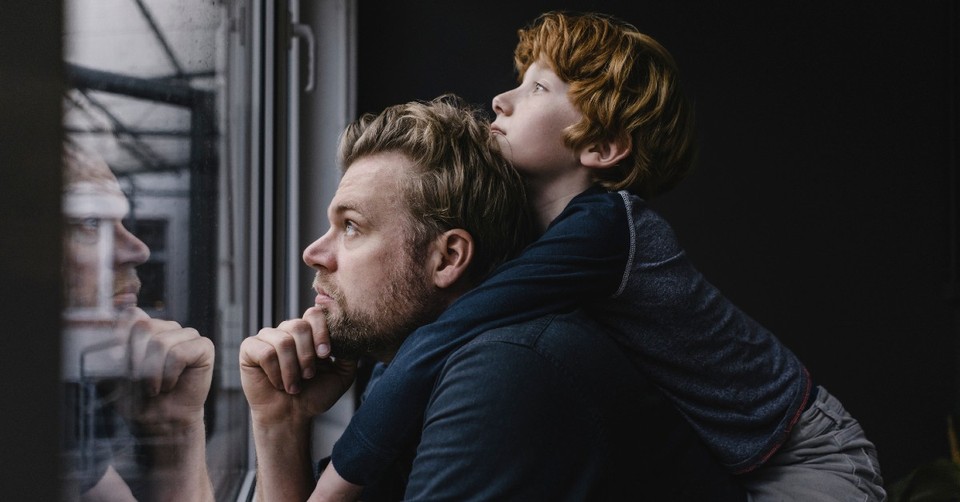On March 11, 2020 — I turned 37. It is also the day the WHO declared COVID-19 a worldwide pandemic. And my birthday, the world, and your life haven’t been the same since.
And maybe you already know this, or suspect this, but maybe no one has actually put it in print or had the guts to tell you — your life isn’t coming back. At least not all of it. And it isn’t about adjusting to ‘a new normal’ either, which doesn’t even make sense if you think about it. Normal is regular, predictable, knowable, and probably comfortable, but new really isn’t any of those. Does life feel normal to you right now?
Let’s do a little recap of how we got here to understand the magnitude of where we’re at. You experienced this, so this won’t be anything new, but when you put these all in a list, it’s amazing how much we’ve been through.
Photo Credit: ©GettyImages/WestEnd61
What Has Happened So Far
On March 11th, 2020 the Coronavirus went viral not just as a health scare, but in the news as it became the cyclical headline everyone tuned in to watch.
We saw major sporting organizations shut down, such as the NBA announcing the pause of their season. The NCAA reacted likewise canceling their March Madness tournament. To put that in perspective, the NCAA tournament played through World War II, while both the Summer and Winter Olympics were canceled in 1940 and 1944.
Mask mandates such as this one in Nevada, where I live, were put into place, effectively changing the culture of our states and our nation overnight.
We became distanced not just socially, but emotionally, as public and private sectors advocated for 6ft of distancing between people.
Many businesses voluntarily shut down or were forced to due to safety concerns. Many will never come back.
By March 21st, a record number of 3.3 million people filed for unemployment, five times the amount at the same time frame in the Great Recession of 2009.
Places of worship were closed such as Churches, Temples, and Mosques, testing the powers of governors, the separation of church and state, and the ‘essentialness’ of religion.
Cities and countries went on lockdown, effectively ending travel and community time in many areas.
Just recently, vaccines have become more available creating a climate of disagreement and division as people discuss, disagree, and politicize whether to get vaccinated or not.
Churches, businesses, and communities only recently have begun to reopen in some places, with many choosing to venture out and many still choosing to stay home.
Can you believe we’ve survived this and haven’t (completely) lost our minds? Our resolve, our communities, our families, and our faith have all taken a beating.
You didn’t get a choice in any of this. In life, we will constantly have circumstances that aren’t of our choosing, but the good news is, we always get to choose our response. And right now, I think the response we need is to have a new beginning.
You do have that choice. You get to respond and to have a new life as we (hopefully) are coming to the end of the influence of the Coronavirus on our lives. But even if it’s here to stay for a bit longer, you can still have a new beginning, starting today. I’d like to give you three ways you can do that. They’re challenging, and maybe even a bit polarizing themselves, but they can help you build a new beginning for yourself and the people closest to you.
In order to do so, we’re going to get help from an incredible Old Testament leader who wanted a new life for himself and his people as he went through many of the same things we have: He was disconnected from people, locked down in a city, fragmented from His culture’s way of life, and upset enough to do something about it.
With him as our guide, let’s discover three ways to have a new beginning after COVID.

1. Lean in, to Your Broken Heart
Our culture and even some factions of the Christian Church have a bad habit of minimizing pain and maximizing positivity. We try to ‘stay positive,’ block out ‘negative energy’ (whatever that means), or just look for the ‘next blessing’ that God supposedly has for us just around the corner. The problem is, life is extremely difficult, and most of us have been taught to lean into every emotion as if they’re the most important thing in the world, or to have none at all and just toughen up. Both are bad advice.
There are times when we do need to be tough, and times we do need to let ourselves feel, but there are also times when something so traumatic happens (like the last year of our lives) where our heart has had enough, and it breaks.
The book of Nehemiah begins with bad news, news so bad that it breaks Nehemiah’s heart:
The words of Nehemiah son of Hakaliah:
In the month of Kislev in the twentieth year, while I was in the citadel of Susa, Hanani, one of my brothers, came from Judah with some other men, and I questioned them about the Jewish remnant that had survived the exile, and also about Jerusalem.
They said to me, “Those who survived the exile and are back in the province are in great trouble and disgrace. The wall of Jerusalem is broken down, and its gates have been burned with fire.”
When I heard these things, I sat down and wept. Nehemiah 1:1-4a
When was the last time you let yourself have a good cry?
In case you’re curious, I’m a big dude at almost 6’3 and about 230 lbs. and I cry a bunch. The fact that I hear people describe crying as anti-manly, weak, or not something they let themselves do often is, quite frankly, stupid, immature, and dangerous. What better way to express a broken heart than to sit and weep? Even Jesus did this.
Have you allowed yourself to mourn over all that you’ve missed out on in the last year? Graduations, births of grandkids, not being able to have a funeral, or a wedding, the loss of your job, or being prevented from seeing loved ones. The list goes on, but we can’t go on like this. We can’t stuff it down, toughen up, or pretend like it’s nothing.
Maybe it’s time you sit down, lean into your broken heart, and have a good cry because I’m not sure you can move forward and have a new life unless you’ve mourned the death of your old one.
Photo Credit: ©Getty Images/Drazen Zigic
2. Go Without, to Be With
For some days I mourned and fasted and prayed before the God of heaven. Nehemiah 1:4b
Right after this, Nehemiah acts in the only way he knew how: he fasted and prayed to be with God. Like you, he probably wanted clarity, comfort, and confidence that everything would be ok. To get that, it wasn’t a one-time prayer or a day without breakfast. If you read on in the story, Nehemiah prayed and fasted for about four months. He was determined to go without in order to be with God in a more concentrated way.
When was the last time you went without something for a long time, in order to be intentional about spending more time with God?
If you want a new beginning for your life, shouldn’t you make God a larger priority in your life? For most of us, COVID stripped away our rhythms, habits, hobbies, travel, and even our priorities. And while lots of people turned to God initially for a short amount of time, it’s the long haul of fasting, praying, and pursuing Him that is the hard work. Anyone can do it for a short time, but the biggest gains in our relationship with God are made in the consistent small, intentional moments we give Him over a long period of time.
Fasting and prayer are both pivotal in seeking God’s guidance as we attempt to have a new beginning in our lives. If you’re looking for something to get you started, try finishing the first part of this sentence:
“For the next 6 weeks I will go without ________________...”
The second part is prayer, which is what Nehemiah gets to next.

3. Before You Start, Stop and Ask
If nothing else the pandemic did two things for us:
1. It helped us realize we have far less control than we thought, which has made us supremely uncomfortable;
2. And secondly, we depend on and need God far more than we realized.
Even the most hardened atheist probably asked, prayed, or thought about some version of the prayer that Nehemiah prayed as he, too, realized he had less control than he’d like. For the next four months he would fast and pray some version of this prayer:
“Lord, the God of heaven, the great and awesome God, who keeps his covenant of love with those who love him and keep his commandments, let your ear be attentive and your eyes open to hear the prayer your servant is praying before you day and night for your servants, the people of Israel.” Nehemiah 1:5
“Great and awesome.” I love those three words. He’s essentially saying: “God my circumstances may not be great and awesome...but you are!” He petitioned God to see and hear him because he was in desperate need, and He desired the intervention of the “great and awesome” God he believed in.
My guess is, you’ve prayed some version of this prayer to God in one way or another. But let’s personalize it a bit more by asking yourself this question:
What prayer would you like God to hear?
If you had God’s full attention, right now, what would you ask of Him? This is the kind of prayer we need to give to God as we too, ask Him to have an attentive ear to hear us, and eyes open to see us. We want to be seen and heard by Him. This is important because we’re impatient and we want change now. If we had the power to change our lives for the better and have a new beginning, we would begin immediately — but as we’ve realized, we don’t have all that much power and control even in our own lives.
And maybe it’s better that way anyway: Before you start anything, you should stop and ask God. You should do this before you do anything; for all the big and the small things like parking spaces, new jobs, a future spouse, a new church, a tough decision, or an easy-going morning — just stop and ask Him to see and hear you.
Let me give you one more practical way, which is the second half of our sentence earlier, to live this out as you seek a new beginning:
“For the next 6 weeks I will go without ________________ and be more present with God, asking Him to hear my prayer for __________________.”
I hope these three ways to a new beginning after COVID have been helpful. You’re already blessed in Christ.
[This post is based on a series our church is doing to help people have a new beginning after COVID. You can check out the first message of that series, which some of this post is based on, right here.]
Photo Credit: ©GettyImages/fizkes
Originally published May 03, 2021.







